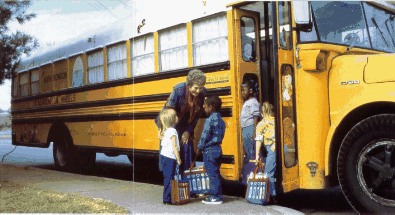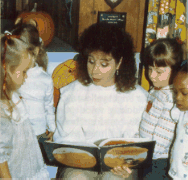not ask to be healed. Instead, I asked GOD to sustain me in some special work that would glorify Him. "Oh, Father." I asked, "let me know Your perfect will for my life."
Something happened to me as I knelt there; a new strength seemed to flow through me, an all but tangible reassurance that Jesus would take care of me. And most unexpectedly, I had the distinct impression that I would live.
A few days later, an orderly brought a dinner tray to me. Later I learned he'd brought me the wrong tray. For weeks I'd had little appetite, but now I hungrily dove into the roast beef, potatoes and peas. Then Dr. Craver appeared.
"Ruth, are you forcing food?"
When I told him I believed I was being healed, he smiled indulgently. "I hope the next examination proves you right."
It did.
The clusters appeared to be diminishing, and over the next few weeks I began to gain weight. Further examination supported the trend, and I began to feel my normal self again. Soon Dr. Craver released me on the condition I return every three months for examinations. Like a bird set free I sped home.
In time I advanced to supervisor of instruction for the city schools in Murfreesboro. Yet all the while I had the nagging feeling I wasn't accomplishing that "special work" I'd asked Jesus to guide me to on that bathroom floor.
One day it came. I was observing a master teacher working with 11 disadvantaged first-grade children. She was conducting a reading lesson entitled "A Surprise for Sally" in which the father had brought home a red wagon as a birthday present. Leaning toward her six year-olds, the teacher asked, "How many of you have had a surprise like that?"
The children did not respond; their faces were blank.
Finally one raised his hand: "What's a supwise teacha?"
Not one of those 11 children knew |
|
what a surprise was; none had ever had a birthday present, books, pictures, toys!
Suddenly I was standing again in our backyard under the chinaberry tree, staring helplessly at Mattie and Bubba.
"What's a country? ...What's a tiger?"
Then I knew even more acutely how deprived these children were. Obviously their parents did not understand what their children needed to know before they came to school. It was a terrible blight, since I knew that a child has acquired half of his intelligence by age four, and that by age five his personality, self-concept and emotional development are almost complete.
"What a tragedy," I cried to Will that night. "These poor kids enter school with three strikes against them. No wonder they have trouble keeping up. No wonder they have no self-esteem."
"I know," agreed Will, "it's awful. But what can be done about it?"
"I don't know," I said mournfully.
But I did know. Somehow, in some way, this was to be my "special work."
But how?
The question was still puzzling me the next morning as I sat down with Baxter E. Hobgood, our superintendent. How could we reach parents and their preschool children before it was too late?
As we talked, a big yellow school bus groaned past the window. We looked at each other. The perfect tool!
With the help of Mr. Hobgood and Rupert Klaus, our school psychologist, we received a small federal grant of $25,000. Then I resigned my supervisor's post to direct the newly created "Classroom on Wheels" project. Mr. Hobgood was dismayed that the budget allowed a salary only half that of my other job. I would have worked for free.
On a late summer's day in 1969 he and I walked through our parking lot with our maintenance supervisor,
|
|
Walter Loyd. He stopped by a yellow bus with a white top. "She's eighteen years old," Walter said, "but she still purrs like a kitten."
Tommy Lytle of the maintenance crew pulled out the seats, repainted the gray interior bright yellow and
trimmed it with warm-looking wood
paneling. He built cabinets to store books, installed a screen for filmstrips, and created a housekeeping center with a table and chairs for kiddie snacks. While this was being done I canvassed low-income neighborhoods, telling mothers of preschool children that soon a classroom on wheels would be coming their way. Some stared suspiciously; some were noncommittal. Meanwhile some seemed to like the idea.
At last, on a September morning, with two young teachers, Margaret Willis and Mary Jane Sailor, beside me, I double-clutched our rolling classroom down into a hollow and braked it to a stop among ramshackle houses. I climbed out and began swinging an old-fashioned brass school bell. Slowly, up and down the lane, doors creaked open, and out came mothers, grandmothers and big sisters leading wide-eyed children.
That day a dozen youngsters worked with puzzles, toys and educational games to develop visual, sensory and cognitive skills. They were astonished to hear that their birthdays would be celebrated. We wanted to make each child feel he was important, that he could
achieve, so that when he entered school he'd have self-esteem and pride.
Some children did not share our vision. Little Ricky cried and hid under the table. Nicole lay on the floor and kicked. Rodney stayed in his mother's lap, his head buried in her bosom.
Some of the parents were shy at first as we tried to help them realize they were their child's most important teacher. At twice-monthly group meetings we gave them kits
|

